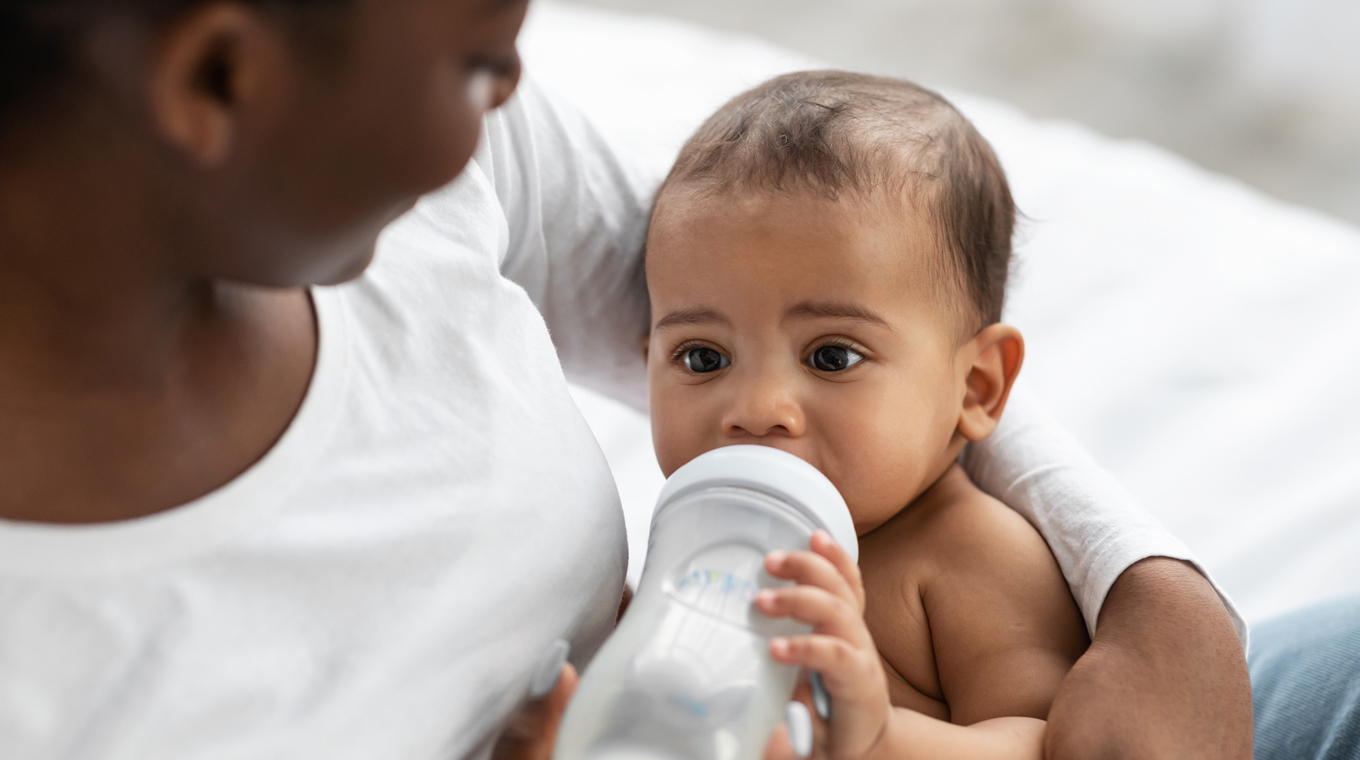
In this article
Breastfeeding and whether to do so or not — as well as the decision to wean — is an emotionally fraught topic and personal choice. And like all personal choices, some chestfeeding parents would love to do so until their kids are thirty (that would’ve been me), others can’t wait to get their baby off the boob, while still others are somewhere in between. If you’re wondering when to stop breastfeeding or if you even should, read on for more information.
How to know when to stop breastfeeding

Truthfully, like most things in life, there is no right or wrong answer to when you should stop breastfeeding. While we would like there to be clear cut absolutes, weaning and breastfeeding is not one of those situations (other than the vague guideline of “as long as possible”).
“The American Academy of Pediatrics (AAP) recommends breastfeeding exclusively for the first 6 months and then in conjunction with solid foods until about one year for the most complete benefits for immunity, nutrition, and development,” AAP spokesperson Steph Lee, MD, MPH, FAAP told Mom.com. “Not every mom’s body will cooperate with this guideline and sometimes people’s situations change and that’s completely okay.”
While breastfeeding for the recommended six months to a year is the ideal, for many people, it’s not possible. For instance, some chestfeeding parents have medical reasons to wean earlier than the suggested six months or a year. They may need to take medications that will pass through their breastmilk and negatively affect their child. Some mothers may experience excruciating pain during breastfeeding — or they might have insufficient milk supply. Sometimes, the baby may have a difficult time latching that even lactation consultants cannot address.
For Elisha Wilson Beach, she decided to wean her second child because she suddenly got nursing rage. “I was pregnant with my third child at the time and the moment she would latch I would feel instant rage from the depths of my soul,” Beach told Mom.com. “It was the strangest thing and it scared the daylights out of me. Thankfully she was old enough to wean immediately.”
Other reasons women stop breastfeeding can be due to logistics. It may be extremely difficult for them to pump at work or store the breastmilk. And sometimes, people just don’t want to continue breastfeeding! As long as the baby is healthy and fed appropriately (there are many great formula options from which to choose prior to 1-years-old) and that’s always a valid reason.
Average age to stop breastfeeding

Lastly, don’t let anyone shame you into weaning before you’re ready to. For mom of two, Lisa Olsen, she was told by someone that it would be “weird” for her to continue nursing past one year. “I wish I had let my daughter lead,” Olsen told Mom.com. “Afterward, I felt guilt about it. Three years later with my second, I absolutely let him lead the weaning.”
According to anthropological data, the AAFP says the natural age of baby-led weaning ranges from 2.5 to 7 years old. So, though it might not be appropriate to chestfeed until your kid is thirty, the age range is pretty substantive and past a year is totally normal.
“My recommendation to parents is always try your best for as long as you can and know that you worked hard to do what you needed for your child,” said Dr. Lee. “After one year, it’s entirely parent and toddler’s preference.”
What is the best way to stop breastfeeding?

Gradually phasing out breastfeeding or pumping is usually the best way to approach weaning. Otherwise, weaning abruptly can be very painful as your body produces milk that isn’t being used and your breasts can engorge and possibly even lead to mastitis.
“The best strategy for weaning is going slow and starting out with taking out mid-afternoon and daytime feeds one at a time since the nighttime ones are usually the last to stop,” Dr. Lee recommended. The pediatrician added that it was typical to wean before starting school such as pre-K or kindergarten since your child would spend the majority of the day at school and it would be easier to drop those daytime feedings. “After age 3, most kids are eating well enough to maintain their nutrition and growth with regular foods,” she said.
If you are weaning before your baby is 6 months old, you’ll need to replace breastfeeding with formula. You may want to consider slowly swapping out one breastfeeding session with formula every few days — and ask another adult to feed your little one until they get used to not eating at the breast. Even if you’re weaning after your baby hits 6 months old, the majority of their nutritional needs will still be met through formula or breastfeeding despite moving to more solid foods.
Alternatively, you can choose to let your baby lead the weaning process. All kids are different and some may stop nursing because there are so many more interesting things for them to explore, and others may want to nurse just as much because they like the closeness and intimacy.
Just remember that you are also a person! You can allow your child to self-wean while still taking into account your boundaries and feelings about when and how often you’d like to nurse.







